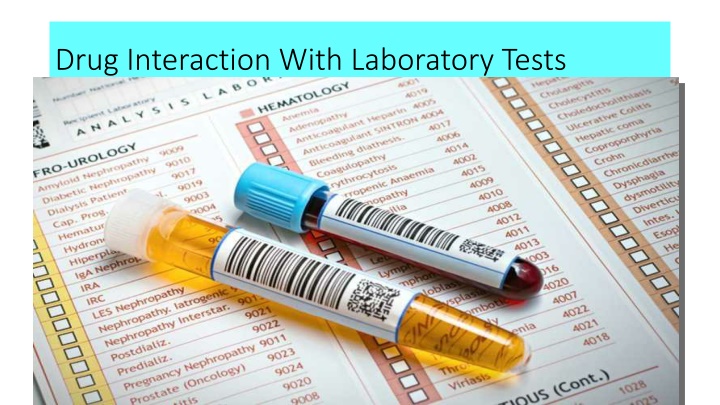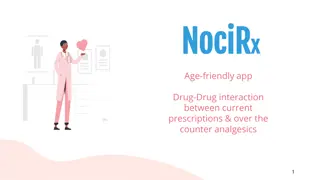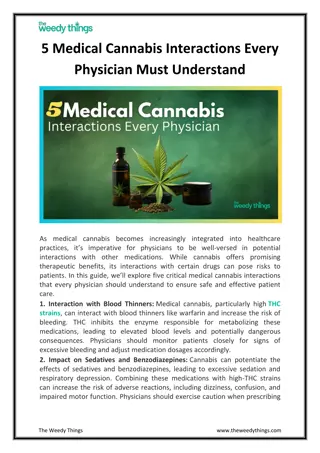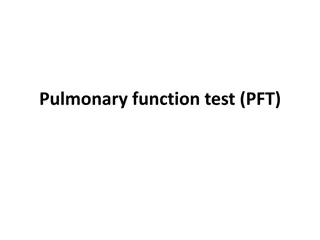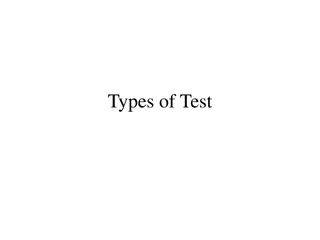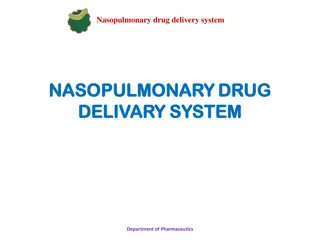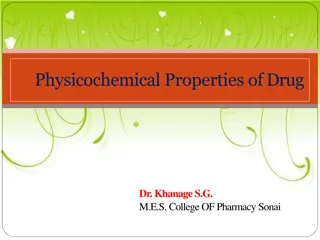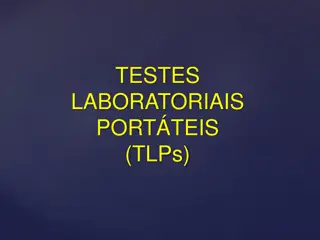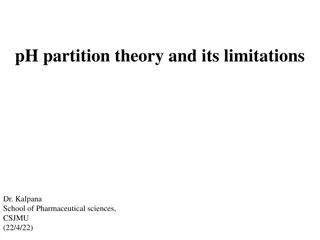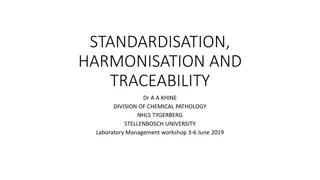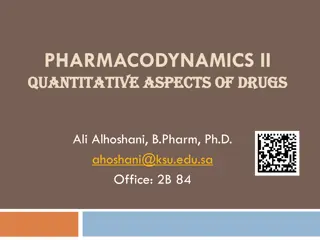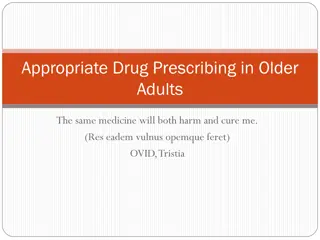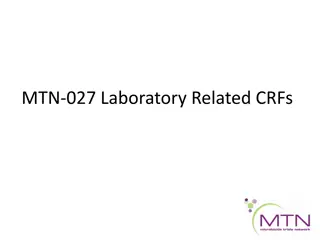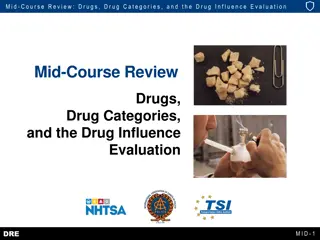Drug Interactions with Laboratory Tests - Understanding Impact on Medical Diagnoses
Incorrect test results can lead to misdiagnoses and treatment errors, emphasizing the importance of understanding drug interactions with laboratory tests. Antibacterials, psychotropics, and contrast media are common culprits affecting various tests. Antibacterial agents like cephalosporins and penicillins can cause false results in urine tests, while psychotropic drugs and contrast media also pose risks. Proton pump inhibitors may influence specific tests, highlighting the significance of considering drug effects on laboratory outcomes.
Download Presentation

Please find below an Image/Link to download the presentation.
The content on the website is provided AS IS for your information and personal use only. It may not be sold, licensed, or shared on other websites without obtaining consent from the author.If you encounter any issues during the download, it is possible that the publisher has removed the file from their server.
You are allowed to download the files provided on this website for personal or commercial use, subject to the condition that they are used lawfully. All files are the property of their respective owners.
The content on the website is provided AS IS for your information and personal use only. It may not be sold, licensed, or shared on other websites without obtaining consent from the author.
E N D
Presentation Transcript
Because incorrect test results can lead to unknown diagnoses and treatment errors that may harm patients, it s important for clinicians to take a careful medical history, as well as to know which drugs can affect which tests. It s important to be aware that the three drug categories that most interfere with lab tests are also highly common ones: antibacterials, psychotropics, and contrast media.
Antibacterial agents are the drugs most likely to interfere with laboratory tests, with cephalosporins at the forefront. Cephalosporins can cause false positive results in urine glucose and urine ketone tests, as well as in the direct Coombs test (used to detect immune-mediated hemolytic anemia). Penicillin-type antibiotics like amoxicillin and ampicillin can also cause falsely elevated glucose test results.
in addition, co-trimoxazole, daptomycin, erythromycin, and telavancin can cause falsely elevated results in prothrombin time (PT) and the international normalized ratio (INR). Doxycycline can cause falsely elevated results in catecholamine tests. Levofloxacin, ofloxacin, and rifampin can cause false positives in urine drug screenings for opiates. Ciprofloxacin can mildly elevate results in urine protein tests.
Psychotropics Psychotropic drugs, which include antidepressants, antipsychotics, and anti- dyskinesia agents, can cause false positives in drug screens and in pregnancy tests.
Contrast media Iodinated contrast media can affect protein levels in the blood, which can manifest as falsely increased results in protein blood tests or protein urine tests. Gadolinium contrast agents can falsely decrease results in colorimetric assays for serum angiotensin-converting enzyme, calcium, and zinc. These agents can also cause positive interference in creatinine, magnesium, selenium, and total iron binding capacity assays, and both positive and negative interference in iron assays. After contrast media are administered, patients should wait at least 4 hours before having lab specimens collected.
Proton pump inhibitors Proton pump inhibitors (PPIs) such as omeprazole, lansoprazole, dexlansoprazole, rabeprazole, pantoprazole, and esomeprazole can cause false negatives in the urea breath test and the stool antigen test. With long-term use, PPIs can lead to false positives in the urea breath test. Some clinicians have reported increased INR and PT in patients receiving PPIs and warfarin concomitantly. PPIs can also cause elevated serum levels of chromogranin A, a marker for tumors.
Biotin In addition to its effects on troponin-based lab assays and hormone tests, biotin may also cause results of falsely high levels of IgE and falsely low levels of insulin, autoantibodies, vitamin B12, vitamin D, folate, prostate- specific antigen, carcinoembryonic antigen, thyroglobulin, ferritin, DHEA-S, IgM, and hepatitis A, B, and C antibodies. Acetaminophen Acetaminophen may cause falsely high readings on some continuous glucose monitors.
Amiodarone Amiodarone may cause increases in PT and INR. Chloroquine and quinine Chloroquine and quinine may cause an increase in protein urine results. Gabapentin Gabapentin may cause an increase in protein urine results. NSAIDs NSAIDs may cause increases in PT and INR. Niacin Niacin may cause an increase in catecholamine results. Propranolol Propranolol may cause increases in PT and INR.
The FDA issued a warning that biotin, often found in dietary supplements, can cause clinically significant incorrect results on lab tests. The FDA was particularly concerned about troponin-based lab assays used to diagnose heart attacks. In these tests, biotin can cause falsely low results, leading to missed diagnoses and potentially serious clinical implications. Also known as vitamin B7, biotin is found in multivitamins (including prenatal multivitamins), B-complex vitamins, and dietary supplements. Many supplements promoted for hair, skin, and nail growth contain biotin levels up to 650 times the recommended daily intake (which is 0.03 mg). Patients with conditions such as multiple sclerosis may also take high levels of biotin, as directed by their physicians. Biotin can also interfere with hormone lab tests, causing falsely high results in testosterone, estradiol, cortisol, free triiodothyronine (T3), and free thyroxine (T4) levels, and falsely low results in thyroid-stimulating hormone (TSH), follicle- stimulating hormone (FSH), luteinizing hormone, parathyroid hormone, and human chorionic gonadotropin levels.
